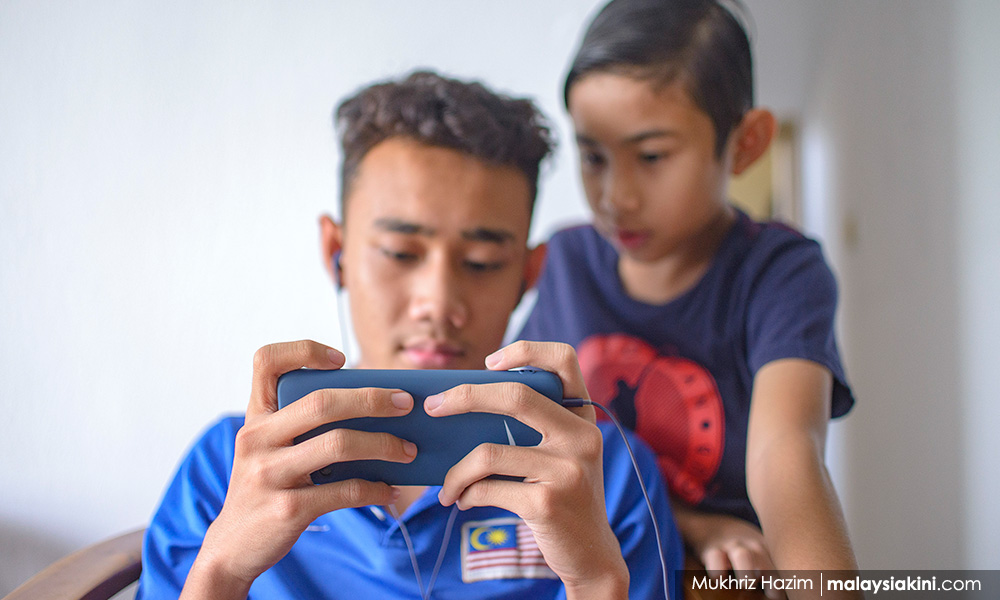Have you noticed what happens when families go out to eat these days?
Everyone is sitting at the table, but there’s barely any chatter. Each person is swiping and tapping on their smartphone, waiting for the food to arrive. When the food arrives, the camera eats first, with the internet invited to the meal.
This scene captures the irony of social media. While it connects us to a vast world of information, memes, and influencers we will never meet, it often yanks us away from the people right in front of us.
Digital engagement has taken over face-to-face conversation. Instead of meaningful talk, we send brief tweets and short texts. No wonder we sometimes feel there is not much to talk about.
When we do chat, it is often sparked by something we saw on TikTok or Instagram, shared without much thought.
Massachusetts Institute of Technology (MIT) psychologist Sherry Turkle, author of “Alone Together”, made some sharp observations about this shift.
She wrote in The New York Times of “how people used to walk with their heads up, taking in the scenery, chatting with each other. Now, everyone’s head is down, typing away, even when surrounded by friends and family”.
Limiting children’s screen time
Turkle’s words from over a decade ago still resonate today, especially when you think about how social media can affect kids’ mental growth.
Emma Duerden, a neuroscientist at Western University in Canada, has found that too much screen time can lead to what she calls “negative internalising behaviours” in children.
It basically means your kid could start playing up - like a Homer Simpson D’oh meme brought to life.

This isn’t just a concern in Canada. It concerns Malaysian parents too.
Back to the restaurant scene - it’s becoming common to rely on screens to keep a cranky kid with a short attention span occupied. It’s like deploying a “digital nanny” to the dinner table.
So, what’s a parent to do? How can parents balance screen time with encouraging real interactions? If the kids don’t have their devices at the dinner table, is there something better they could be doing? Read the menu?
In the US, there’s considerable research on how too much social media can affect young people’s mental health. These insights are relevant globally, including for families in Malaysia.
The US Surgeon General’s 2023 report gave some straightforward advice:
1. For parents and caregivers: Create tech-free zones at home to encourage in-person connections. Teach kids about being responsible online and model good behaviour. If you see something problematic online, report it.
2. For children and teenagers: Develop healthy online habits like limiting social media time, blocking unwanted content, being careful with personal info and reporting harassment or seeking help if needed.
Australia is also stepping in to protect kids from the lure of endless scrolling and mindless clicking. Following the case of a Melbourne teenager caught for manipulating artificial intelligence (AI) to create and share lewd images of his female classmates, the government is considering banning social media accounts for kids under 16.

But is this even possible when AI and the internet are so embedded in what we do?
Meta (the company behind Facebook, Instagram and WhatsApp) is already using data from Australian social media accounts to train its new generative AI models.
Information is not knowledge
While a total ban might seem challenging given our digital lives, it underscores the need for parents to be aware of their own screen habits and the impact on their kids.
The internet isn’t going anywhere. Our screen time will probably keep climbing and we’ll continue checking our notifications - yes, even at the dinner table.
Sure, the internet has certainly made us more informed and, in some ways, more knowledgeable. However, it has also made us dependent, even addicted, to social media where we constantly share our lives and follow others.
Some wise folks - all dead now - from before the internet era had things to say about this.
Albert Einstein reminded us that “information is not knowledge”. Frank Zappa, an American musician, added that “knowledge is not wisdom, and wisdom is not truth”. John Naisbitt, author of “Megatrends”, observed that we are “drowning in information but starved for knowledge”.
Yes, we’ve gained a lot from the internet, but we might also lose some things.

For instance, the easy access to information online can reduce our memory retention. The immediacy of the internet can make us less patient. Constant notifications can distract us from deep thinking. Over-reliance on GPS can weaken our natural navigation skills.
So, what can parents do to balance the benefits and drawbacks of social media?
Experts from the American Psychological Association, the Raising Children Network Australia, Connect Safely and Unicef Australia have plenty of advice.
Let’s start with something simple. Next time you’re at the dinner table, put down the phone. Start a conversation. You might find it surprisingly enjoyable to connect with the person sitting next to you. No Wi-Fi is needed. - Mkini
ERIC LOO is a former journalist and educator in Australia and a journalism trainer in parts of Asia.
The views expressed here are those of the author/contributor and do not necessarily represent the views of MMKtT.

